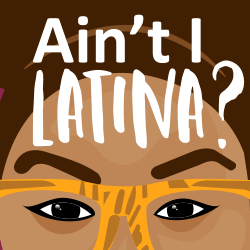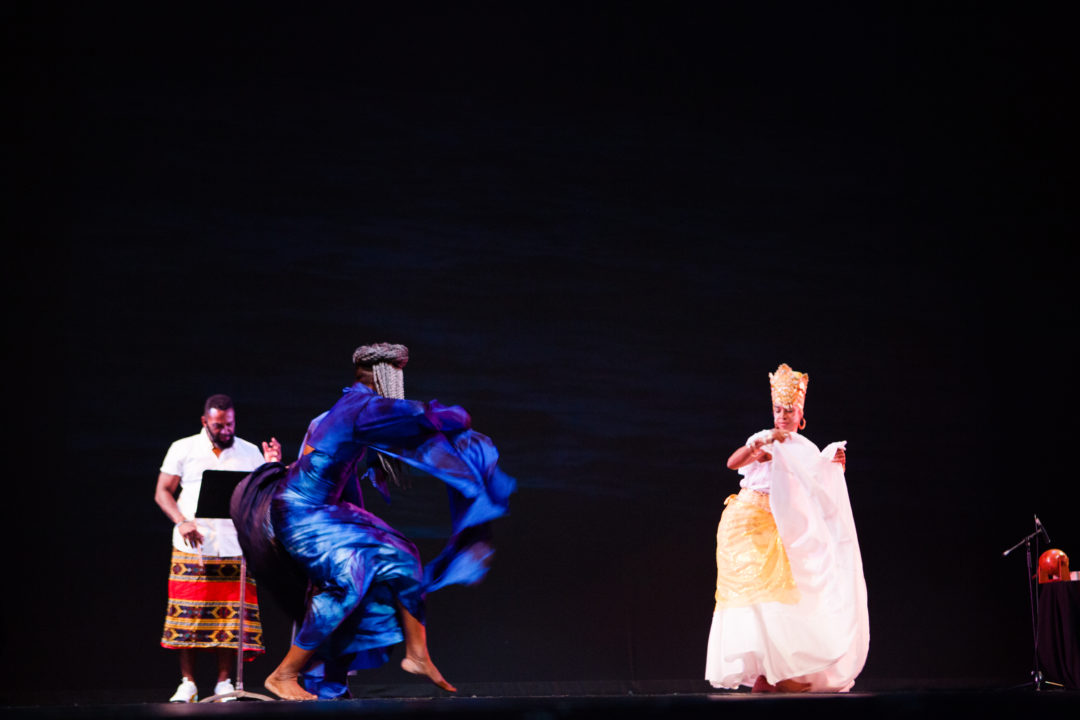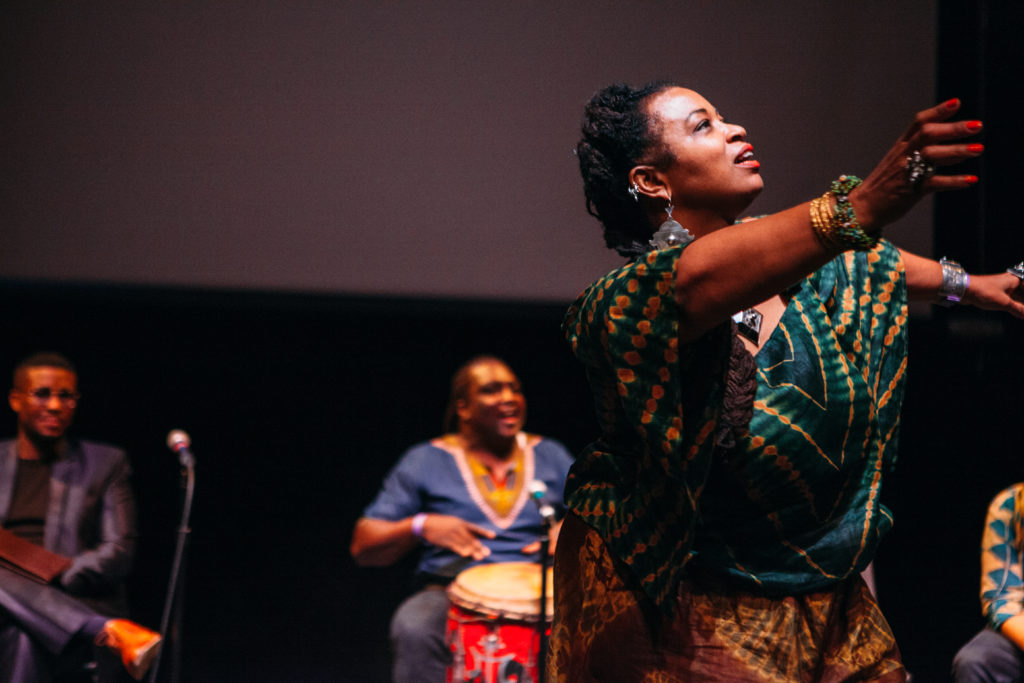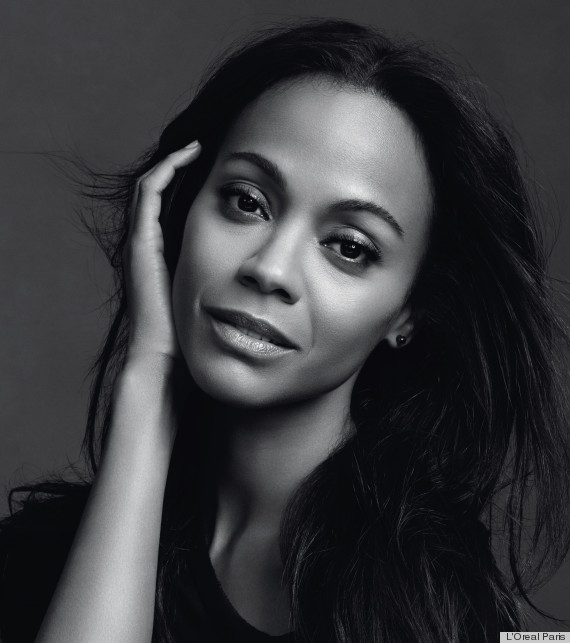On Saturday, September 23, the Caribbean Cultural Center African Diaspora Institute held Trade/Itions: Honoring African Spiritual Traditions, a conference to celebrate the various African religions of the diaspora and build community around these different entities. Knowing the amazing dedication that the CCCADI has to empowering and preserving the knowledge and history of these spiritual communities, I knew this event would be genuine and interdisciplinary. As a first-generation, Latinx woman, it is important to me to learn and respect the history and culture of African religions and traditions that are embedded in our heritage but often erased and ostracized due to Anti-Blackness. Attending Trade/Itions was a way for me to honor the community that gave so much of itself to Latinx history and society.
In June 2011, I, along with my Latin American and Caribbean Cultures class, had the privilege of studying abroad in Havana, Cuba. Dr. Alyssa Garcia’s class was where I learned about intersectional feminism, but, more importantly, I learned to question the narrative that whiteness had created of Latin America and the Caribbean. What has stayed with me since my academic trip to Cuba was the concept of syncretism of Catholicism and Yoruba-based religion of Santeria. As a class, we discussed how syncretism was a tool for the Spaniards to strip African and Indigenous people of their identities, forcing them to assimilate. But the African and Indigenous people also used this same tool as a way to preserve their traditions and culture, however, in secrecy. Although this trip was over six years ago, I go back to it to reiterate the experience of a Latin American country that is engrained in African culture, yet masks itself in a colonial identity. Because of this, Dr. Garcia was intentional on teaching her class from a bottom-up point of view, rather than using an “exploratory and Ivory tower” view.
At Trade/Itions, we saw Summer of Gods, a film by Eliciana Nascimento. The film portrayed various Yoruba traditions without exposing too much about the process of initiation into Yoruba-based religions. It was absolutely beautiful and made me think of Cuba, especially considering that Nascimento was Brazilian born but initiated in Cuba. I had the chance to speak to Nascimento during Trade/Itions. Nascimento expressed that “syncretism was actually a form of survival for our ancestors”, where people “hid their orishas inside of Catholic statues”.
This is where syncretism becomes a key part of culture, where Catholic santos are intertwined with Yoruba orishas.
“Our ancestors believed in that,” says Nascimento, as she talks about how the ancestors believed in the Catholic santos, as well as the orishas because it meant surviving in colonial, slavery-ridden Cuba. Nascimento makes it clear that the orishas are not meant to be exposed for entertainment but rather for culture, learning and connection, ultimately bringing various orisha-based communities together.
“I don’t want to spend money, energy or creative time to create something that will just be in the industry for entertainment,” shares Nascimento as I ask her about the possibility of a project that centers around the ancestors’ work of syncretism and survival. Nascimento points out, very courageously, that she needs to research more and learn more about how the ancestors survived this time of extreme assimilation, but she is committed to tell this necessary story.
Another panel that hit home was Human Rites and Human Rights with panelists Sabine Blaizin, Valnizia Pereira, Gloria Rodriguez and moderator Malene Younglao. This panel was fruitful in how these women observe and conserve humanity at the core of their spiritual and laboral work. After hearing this panel, I felt a deep connection to Rodriguez and asked her some questions that pertained to doing the work and also being present throughout the work. Being a scholar and a professor at Bronx Community College, Rodriguez spent a lot of time discussing and explaining how much this work needs to be done in the community. What I found particularly interesting was her environmental work with the Bronx River Alliance, considering the natural disasters that occurred all over the Caribbean and Mexico. To me, one of the most important phrases of the conference was “the divine energy is being negated”, and Rodriguez spoke in depth about how the the negations in divine feminine energy is causing so much shift and disturbance because of the lack of equilibrium. Listening to how our elders are coping and working through the work was inspiring and motivating to be a part of the work.
Last but not least, the night’s closing included performances from Navasha Daya and Oshun. I had seen Oshun before at the Afro-Latino Festival in 2016 and loved their performance. I was fortunate enough to ask them some questions after their incredible performance and we talked about youth, Beyonce and everything in between. Mostly importantly, I wanted to know how much pressure they felt to carry the ancestors in their everyday work at such a young age. The conference alluded so much to honoring and asking the ancestors for guidance, but here were two young women and recent college graduates being genuine and whole in their divine and spiritual practice, along with their talents of music. Thandiwe and Niambi spoke intrinsically about their work as artists and spiritual members. To hear these two young women be confident in their purpose was motivational. Oshun knew they had so much to carry but they are willing to carry it because they believe it it is part of who they are. To hear and see such motivated and driven young girls was a new and fascinating phase.
Overall, Trade/Itions was a phenomenal event that touched on so many aspects of spirituality and community. Trade/Itions was a time to come together and act on how we will progress in the future. Dr. Marta Moreno Vega was adamant about discussing solutions and resolutions for our community. I encourage us all to continue this conversation of progression and always think about how we can move forward. I thoroughly enjoyed CCCADI’s Trade/Itions and eager to see more events like this in our community, pushing us to think about our future and core values.
Did you attend Trade/Itions? Let us know how you enjoyed it in the comments section!





